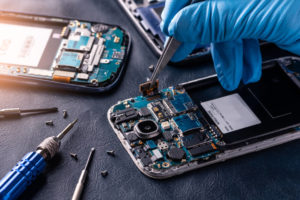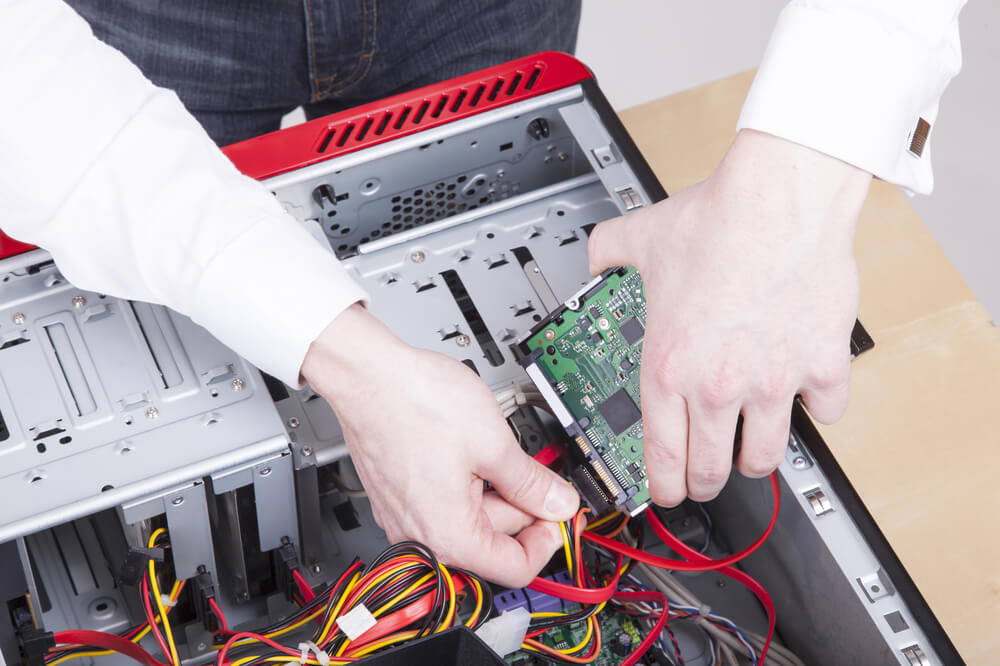A few issues with your laptop or desktop computer can lead to lost data, as well as other problems. One of these is hard drive failure. Failure in the hard drive can lead to loss of data and other issues.
Our laptop and desktop repair services at PC Laptops include many areas. Hard drive repairs and checks are just a few of the quality solutions that we offer to our clients. There are a few basic ways to troubleshoot your computer’s hard drive. You can do it yourself or have our computer repair experts assist you. This is a quick guide.
Turning on and off
Although this is the most common method of computer repair, it can be very useful. This is worth trying at least once in case the machine isn’t starting up immediately or performing slowly.
It’s not always easy to answer “turn it off”, but you can try holding the power button down for several seconds until the process stops completely.
Malware detection
If this doesn’t work, then the next step is to look for malware. Malware can cause frequent crashes and slowdowns to your computer. Malware is shorthand for malicious software. It’s anything that inserts itself in your system or network settings, without your permission. This can include viruses, Trojans and spyware as well as other harmful applications that disrupt the central operation of your computer.
A common way to detect the presence of malware on your computer is to run an anti-malware scan. This can be done either by downloading reputable software or using tools that are pre-installed on most computers. After the scan is complete, you should remove all malware threats found on your computer and take steps to prevent future attacks.
It’s time for professionals to help you if malware is already infecting your computer’s files and other settings.
Stuffed Disk Decongestion
There’s a possibility that your hard drive is too full after a lot of use. As it struggles to find the files and folders that it needs, this can lead to the drive slowing down or even crashing.
You can free up disk space by either deleting files or folders that are not needed or using a disk decongestion program or tool. Although it can take some time, this is a great solution when your hard drive is at its maximum capacity.
If your current hard drive is not large enough to meet your needs, you can upgrade to a bigger one. This is the best route to take if you are constantly having disk space problems.
Defragmenting
Disk fragmentation is another issue that could be affecting your hard drive. This is when your files are broken up across your hard drive. This can cause your computer to slow down and interfere with basic processes.
Disk fragmentation is something you can’t avoid. It happens over time. However, regular defragmentation can reduce the risk and improve performance. Most computers have a built in defragmentation tool that can be accessed from the Disk Management section of your System Tools.
Error messages
Other situations may result in a variety of error messages appearing on your screen. These messages can include “Cannot locate the ATA device,” or “Drive not recognised” warning messages. They will inform you that your drive isn’t connected to your system, or it isn’t working properly.
There are many ways to interpret these messages. You might try entering the error code or message into a Google search. This may help you find the correct action. If that doesn’t work or you aren’t confident trying this on your own, bring the device to one of our specialists who will diagnose exactly what is happening.
Problems with sound or physical health
There are other signs that your hard drive might be having problems. A strange sound coming from your computer could indicate that your hard drive may be at risk. Another sign of a problem with your hard drive is the unusually hot computer.
These symptoms can be caused by hard drive failure so it is important that you bring your device in to have it repaired as soon as possible. These symptoms can be a sign of hard drive failure and can quickly lead you to more serious issues if they are not treated.



